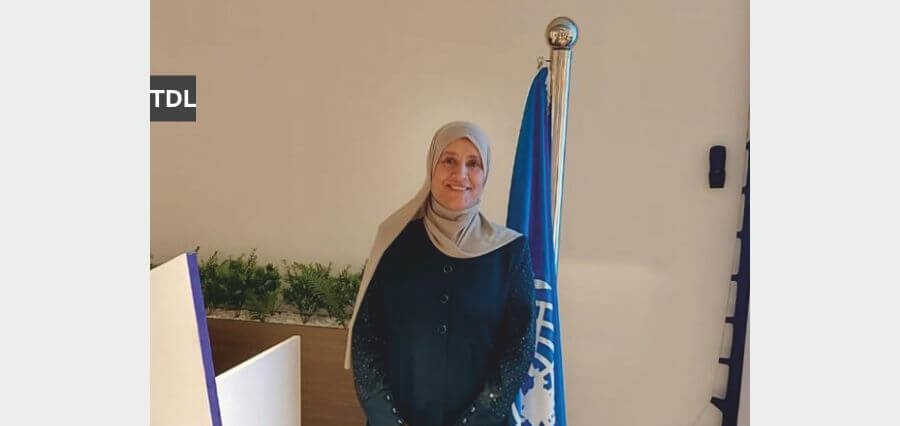Water quality management is not just an environmental issue; it is a cornerstone of sustainable development, public health, and ecosystem integrity, particularly in the 21st century. This is especially so in arid and semi-arid areas such as West Asia, where water shortage and pollution are real challenges to ecosystems and human health. Sustained population growth, intensified industrialization, and the increasingly evident effects of climate change put tremendous pressure on already scarce water resources. Without efficient and creative measures, these issues have the potential to cause serious economic, social, and environmental damages. The urgency of resolving water quality problems calls for an interdisciplinary strategy, bringing together strict scientific inquiry, adaptive policy-making, strong regulatory systems, and participatory community involvement to protect this valuable resource for future generations.
By taking the responsibility of tackling the challenges of water quality and water management, leaders such as Tharwh Qutaish are coming up with transformational solutions. As a World Water Quality Alliance Member and UNEP Water Quality Management Consultant for Saudi Arabia, she bridges science, policy, and community action to address pressing environmental challenges.
Early Life and Formative Influences: Seeds of Environmental Stewardship
Tharwh’s path to becoming a water quality champion started early in life, imbued with a strong love for nature and sensitivity to the environmental issues in her community. These early experiences informed her academic choices and paved the way for a career committed to safeguarding and conserving water resources. Her academic journey gave her a profound grasp of environmental science concepts and the value of evidence-based decision-making.
Academic Excellence and Building a Foundation
Tharwh started her career as an environmental steward on a solid academic foundation in environmental science. She started with practical experience in water quality monitoring, analysis, and assessment at the Royal Scientific Society (RSS) in Jordan early in her career. These formative years established the foundation for her holistic understanding of the multifaceted issues affecting water resources in the country. Her period at the Royal Scientific Society was most influential, where she gained hands-on experience in water quality monitoring, analysis, and assessment. She directly involved herself in research activities, undertook field surveys, and examined water samples to determine pollution levels and determine the sources of pollution. This field experience presented her with the practical consequences of water quality challenges and strengthened her resolve to become a part of solving them.
Specialized Knowledge in Water Quality Management
Tharwh, having more than 26 years of experience, emerged as a specialist in water quality management, handling integrated solutions in water governance and is known to be an expert in connecting science, policy, and community action. Her dedication to the profession has won her global acclaim in the form of the Global Women Change Makers Gold Medal. She has honed skills in a number of domains, such as water quality assessment, data analysis, environmental assessment, and policy making. These multiple skill sets enable her to tackle issues of water management from an integrated viewpoint, with consideration of interconnectedness among several factors.
UNEP West Asia: A Catalyst for Regional Impact
As a UNEP West Asia Water Quality Management Consultant, Tharwh is instrumental in formulating environmental policy and encouraging sustainable approaches. Her activities range from assisting governments in creating and instituting effective water quality monitoring schemes, enhancing regulatory capacity, and advocating for regional collaboration. She offers technical advice, organizes training workshops, and facilitates knowledge exchange to improve the competence of local experts and decision-makers. Her exposure to UNEP West Asia gives her an opportunity to make a difference in environmental policy and achieve sustainable practice on a regional level. Her duties involve advising governments on the establishment and implementation of water quality monitoring programs, enhancing regulatory mechanisms, and promoting regional cooperation to share water-related challenges.
The World Water Quality Alliance: Working Together and Knowledge Exchange
Tharwh’s participation in the World Water Quality Alliance extends her influence worldwide. With this community, she works together with scientists, policymakers, and practitioners worldwide to exchange knowledge, share best practices, and push the science of water quality management forward. As a member of this coalition, she is able to work alongside global experts, share ideas, and borrow best practices from other regions’ successful endeavors. She participates in conferences, workshops, and joint research initiatives on a regular basis to remain abreast of the latest water quality management techniques.
Integrated Water Governance: A Holistic Approach
Tharwh champions the concept of integrated water governance, recognizing that effective water management requires a holistic approach that considers the interconnectedness of social, economic, and environmental factors. She advocates for policies that promote water conservation, reduce pollution, and ensure equitable access to water resources for all stakeholders. She emphasizes the importance of considering the social, economic, and environmental dimensions of water management to achieve sustainable outcomes. This includes interacting with a variety of stakeholders, such as government departments, local communities, businesses, and non-governmental organizations, to ensure that everyone’s voice is heard in decision-making.
Regional Impact: Shaping Environmental Policy Across Five Countries
Tharwh’s scope of work spans several nations in the MENA region and internationally, where she has spearheaded projects enhancing water quality, enhancing sustainable agriculture, and conserving biodiversity. Her projects have helped build national environmental strategies, protected areas, and applying new water management technologies. The projects have dealt with upholding sustainable agriculture techniques, installing water-saving irrigation systems, and rehabilitating degraded ecosystems. She collaborates closely with local communities to enhance their capacity to sustainably manage water resources and conserve biodiversity.
Community Engagement: Empowering Local Stakeholders
Understanding that sustainable solutions involve the active involvement of local communities, Tharwh places a high value on community engagement in her activities. She develops and executes outreach programs to create awareness about water quality problems, encourage proper use of water, and empower communities to act to conserve their water resources. She believes that long-term success is based on the active participation of local communities in decision-making processes. Tharwh maintains close links with community leaders, local NGOs, and residents to plan and execute projects that are specific to their needs and priorities.
Challenges and Solutions: Overcoming Water Scarcity and Pollution
During her career, Tharwh has faced a variety of challenges, such as water scarcity, pollution, and climate change impacts. She has always shown innovation and perseverance in seeking solutions, pushing for new technologies, and encouraging policy changes. She is convinced that technological innovations, including water-saving irrigation systems, renewable energy-powered desalination plants, and high-tech wastewater treatment systems, can be important in solving water scarcity and pollution. Tharwh encourages the use of these technologies in her practice.
Tharwh expresses, “Although the challenges we are facing are formidable, I am hopeful about the future. Through embracing innovation, promoting collaboration, and empowering communities, we can overcome these challenges and build a more sustainable world for generations to come.”
Building Capacity: Empowering the Next Generation
Tharwh is devoted to capacity building in the water industry, mentoring young professional women, and sponsoring education programs. She believes that investing in human capital is necessary for the long-term sustainability of water resources in the region. She gives regular lectures at universities, runs training workshops for industry professionals and government officials, and offers mentorship to future environmental scientists.
“We need to empower the next generation to be champions for water quality and environmental sustainability,” says Tharwh.
Personal Reflections: A Lifelong Commitment
In addition to her professional credentials, Tharwh is inspired by a profound personal dedication to the preservation of the environment. She is compelled by the desire to encourage others to act to defend the earth and asserts that there is something each one can do to build a more sustainable world.
A Human Touch: Passion and Dedication
Apart from her professional success, Tharwh is also recognized for her diligence, commitment, and firm determination for conserving the environment. Her efforts are fueled by an immense sense of responsibility towards protecting Earth for future generations.
An Experienced Writer
Tharwh authored the first Technical Training Manual on Environmental Governance tailored for local communities in Arabic. She has contributed extensively as an expert writer for technical reports on online water quality monitoring, as well as for national State of Environment reports for Jordan and Saudi Arabia.
Expanding Horizons: Future Directions and Emerging Challenges
Looking to the future, Tharwh is concerned with solving new challenges of water quality management, including the effects of microplastics pollution, increased urban water demand, and more resilient water infrastructure. She is also dedicated to ensuring gender equality in the water sector, given that women are central to water management at household and community levels.
A Legacy of Environmental Stewardship
Tharwh’s career is a testament to the potential for change brought about by expertise, leadership, and commitment in water quality management. Her experience with UNEP West Asia, World Water Quality Alliance, and others has contributed tremendously towards safeguarding water resources, facilitating sustainable development, and enhancing community livelihood in the MENA region and internationally. As an environmental consultant to the water quality management sector, she continues inspiring other people to contribute to the movement of environmental stewardship and building a long-term legacy of lasting change. Her relentless work has assisted in molding environmental policy, encouraging sustainable development, and enabling communities to safeguard their water resources. Her commitment is a source of inspiration to environmental practitioners globally.
This update greatly builds upon the background on Tharwh’s research, adds context about the significance of water quality control, provides extra quotes and deeper insight into her philosophy, and offers more breadth in discussion about the problems and future research paths in her arena.
In addition to her consulting roles, Tharwh has served as a Proposal Assessor for the Women for Water Partnership (WfWP) in the Netherlands and several national programs, evaluating community-led initiatives focused on water governance and women’s empowerment. She has also served as the National Assessor for the Blue Flag Program in Jordan, ensuring compliance of coastal and inland water sites with international sustainability standards.
Read Also: Lana AbuQulbain: Redefining Resilience and Engineering Greener Futures




